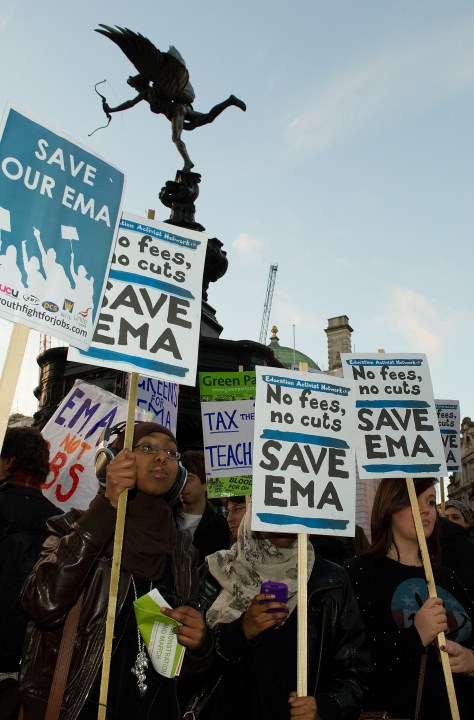 The real question raised by Suzanne Moore’s latest impassioned piece for The Guardian is whether the coalition government likes young people
at all, or even gave them a thought when considering their cuts-reform double whammy.
The real question raised by Suzanne Moore’s latest impassioned piece for The Guardian is whether the coalition government likes young people
at all, or even gave them a thought when considering their cuts-reform double whammy.
Here’s the rub: “There are no jobs. The most beautifully manicured CV will not get you a minimum-wage job in a pub. Your brilliant degree is meaningless when what employers
repeatedly emphasise is ‘experience’… Every rite of passage of becoming an adult – a job, an income you can live on, affordable housing, independence from parents – is being
taken away.”
This is overstated for effect. It isn’t quite true that there are no jobs, but there are very few. And many of those that exist are unpaid internships on the margins of legality that should
not really be called jobs at all. This week I spoke to a chief executive of one of the big companies still running a graduate trainee scheme who said this year’s cohort did not have a single
friend with a job.
It is possible to argue the case for tripling tuition fees (the fairest way to maintain university funding), abolishing the Education Maintenance Allowance (most people who received it would have
stayed on at 16 anyway) and abolishing the Future Jobs Fund (there are better ways of getting young people back to work than a sixth month job subsidy for employers). But the combined effect means
that young people could be forgiven for thinking they are being targeted for a special dose of misery.
This week’s unemployment figures show that one in five 16 to 24-year-olds are now out of work, which already means they are being disproportionately hit by the current crisis.
Ministers will soon need to have an answer to the question: What are you doing for young people who want to work? This may not yet be a lost generation but it is lost to the coalition unless it
moves quickly to prove that it has at least considered their interests.
Martin Bright
Does the coalition hate young people?







Comments